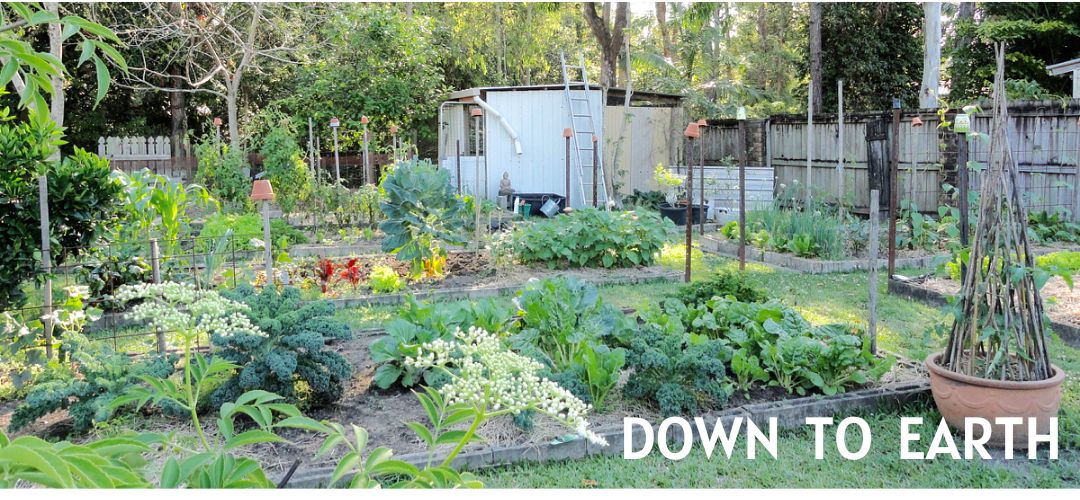We put a lot of time into growing our own food. Our aim is to grow most of what we eat and although the amount varies, at the moment we'd grow or make from scratch about 75 percent of our food. Going into the garden and tending our small crops is an important part of our day. We both enjoy the time spent in the garden and I doubt I'd feel right if I didn't have food growing in the backyard.
Generally we grow regular fruit and vegetables like potatoes, tomatoes, lettuce, cabbage, beans and spinach but we also grow a few permaculture plants like Madagascar beans and pigeon peas, We planted two Madagascar beans and they've grow in a huge wall of green tendrils. The beans themselves are pink and white and are a flat bean, good for adding to soups and casseroles. You harvest them as dry beans so they grow to maturity as a flat green pod, then you wait till they dry on the vine and then harvest. The pigeon peas are a dahl, similar to the split peas we use for pea soup. Our bushes have just started to flower so we are still a while away from harvest. Along with the Madagascar beans, the pigeon peas will be harvested dry and stored in the stockpile cupboard in jars until they're used.
Madagascar beans
Pigeon pea flowers
We try to operate a closed system in our garden. By that I mean that we prefer to bring in the least amount of seeds, manure, straw, mulch etc from outside. We want to make those things ourselves. All our seeds are open pollinated types, often heirloom seeds, that we can save our own seeds from each year. Every season we grow vegetables from the seeds we've collected from our garden the season before. This gives us better crops as the seeds modify themselves slightly to the conditions they grow in, and when they're planted in the same conditions, they perform better. If we need new seeds or wish to grow something a bit different, we rely on seed trading with others who also save their own seeds. We never buy hybrid seeds.
We also make our own fertiliser - either a comfrey tea made with the comfrey we grow that is ridiculously high in nitrogen, or chook poo from our chickens that we add to compost. We also have a worm farm so we have an large supply of worm castings which the plants absolutely love. The only fertiliser-type product I buy is sulphate of potash. It's an organic additive that help plants develop roots, flowers and general strength.
These chickens are Cocobelle and Cocochanel. Both excellent layers of around 18 months in age. We generally get about four or five eggs every day from our seven chooks.
Blue lake beans, telephone peas and siberian kale.
I've recently been sent some old traditional oats and barley so when we have some space, I'll try my hand at growing those grains for chook feed and mulch.
We grow a variety of fruit as well, but in small amounts. Currently we have oranges, lemons, rhubarb, pink grapefruit, mandarin, passionfruit, bananas, loquat, grapes, pineapple, blueberries, raspberries, peaches and nectarines. We often buy fruit though, as none of our own fruit grows fast enough. Hopefully our future will bring us better and bigger fruit crops.





